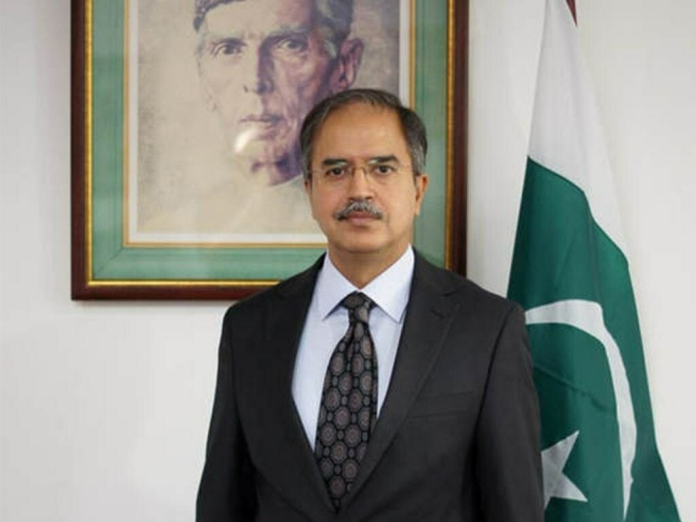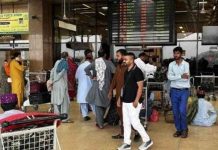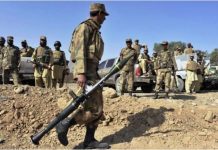UNITED NATIONS, APR 24 (APP/DNA)::Pakistan has called for reforming the multilateral trading system to ensure that it works for all and reflects the needs of developing countries at a UN Security Council Arria-formula meeting on “the impact of unilateralism and bullying practices on international relations.”
“Trade should be a bridge, not a barrier – a vehicle for peace and shared prosperity, not domination or isolation; We must resolve our differences through dialogue, not dictate terms through pressure,” Ambassador Asim Iftikhar Ahmad, told the meeting held under the format named after a former Venezuelan Ambassador to the UN, Diego Arriva.
“Only then can we build genuine trust in the rules-based order,” the Pakistani envoy said, while underscoring the need for reviving faith in multilateralism and collective action.
Arria Formula meetings are informal that enable Security Council members to have a frank and private exchange of views on relevant subjects.
At the outset, China, which convened the 15-member Council meeting, accused the U.S. of using tariffs to bully other countries.
“Under the guise of reciprocity and fairness, the U.S. is playing a zero-sum game, which is essentially about subverting the existing international economic and trade order by means of tariffs, putting U.S. interests above the common good of the international community and advancing hegemonic ambitions of the U.S. at the cost of the legitimate interest of all countries,” China’s U.N. Ambassador Fu Cong said in his opening remarks.
Ambassador Fu also defended China for its “decisive countermeasures” after facing what he described as “U.S. abuse of tariffs.”
The United States dismissed China’s meeting as a “performative maneuver” lacking substance or credibility.
U.S. diplomat Ting Wu accused China of using unilateral unfair trade practices that hurt market economies around the world.
In his comments, the Pakistani envoy called for promoting dialogue and diplomacy, discarding zero-sum approaches, shunning confrontation, and advancing mutually beneficial cooperation.
“We must revive faith in multilateralism and collective action,” Ambassador Asim added.
The world today, he said, stands at a crossroads with wars, inequality, economic instability, and climate catastrophe threatening peace and security.
“We are also witnessing the unraveling of hard-won norms that have underpinned global peace and cooperation for decades”.
“We must ask if the international community can afford another era of might over right? Can it withstand further turmoil after the death and destruction witnessed in the conflicts raging in the Middle East, Europe and Africa, with other major unresolved disputes posing a threat to international peace and security elsewhere.”
The United Nations, he said, was created to protect, and promote the interests of all nations, big and small, founded as it was on the spirit of cooperation and the common good of humanity, adding that the world body was not established to serve the interests of the powerful.
“History reminds us that enduring peace and sustainable solutions have never come from unilateral actions or coercive practices. They emanate from inclusion, respect, shared purpose and unified responses,” he said.
Highlighting that peace and development are inseparable, Ambassador Asim said, “For the developing world, the promise of the Sustainable Development Goals remains a distant dream – threatened by unfair, inequitable and exploitative trade and financial systems, climate injustice, and a lack of political will from the partners.”
Reaffirming Pakistan’s belief in strengthening multilateralism, he urged the world to recommit itself to international law and the principles of the UN Charter, stating that these principles are not optional ideals, rather they are the foundation of a just world order.
“We believe in a world where cooperation triumphs over coercion, and solidarity replaces silence in the face of suffering”, the Pakistani envoy said.
“Our vision is simple and clear: a fairer, more peaceful, more compassionate international order – one that serves the many, not just the few.

















